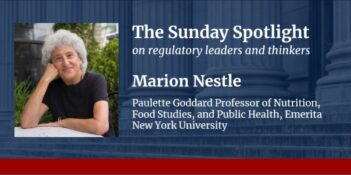
U.S. prohibition of flavored cigarettes violates international trade agreement.
A World Trade Organization (WTO) appeals board determined that a U.S. ban on clove cigarettes, part of a U.S. program intended to curb access to and the appeal of tobacco products to minors, violated U.S. treaty obligations. The WTO opinion, issued last week, stated that the ban discriminates against products made in other WTO countries. Indonesia, the world’s majority producer of clove cigarettes, brought the complaint against the U.S.
The Family Smoking Prevention and Tobacco Control Act of 2009 banned the production and sale of most flavored cigarettes containing certain additives, including cloves. The Act excluded menthol cigarettes from the ban, although it requires the Food and Drug Administration (FDA) to submit a report on the impact of menthol in cigarettes on public health. (Separately, the Act granted the FDA the power to regulate tobacco, reversing a previous U.S. Supreme Court decision that tobacco regulation was not within the FDA’s authority.)
While acknowledging that the law’s aim of discouraging young people from smoking was legitimate, the WTO appeals board affirmed a September, 2011, WTO panel report that found that the ban violated the “national treatment” obligation of the Technical Barriers to Trade (TBT) agreement. The national treatment obligation requires nations to treat products made in other WTO countries with “treatment no less favourable” than domestically made “like products.” The appeals board found the U.S. ban violates the obligation because it treats menthol flavored cigarettes more favorably than it does clove cigarettes which the panel considered to be a “like product.”
On appeal, the U.S. argued that clove and menthol cigarettes were not like products — but the WTO disagreed based on an analysis of likeness criteria including physical characteristics, consumer tastes, habits, and uses, and tariff classification. The appeals board said the regulatory concerns underlying the ban, namely deterring youth smoking and the health risks associated with tobacco use, could be relevant to determining the likeness of products only to the extent that the regulatory concerns impact the competitive relationship between the products. The board also decided the U.S. violated procedural requirements of the TBT agreement by only allowing a three-month interval between publication of the statute and that ban’s effect.
The U.S. also argued on appeal that the federal tobacco control statute was consistent with the global trends in tobacco regulation. Other countries, such as Brazil, have recently made similar bans on flavored tobacco. Public health regulations of tobacco were a substantial focus in TBT Agreement March 2012 meeting.
A spokeswoman for the U.S. Trade Representative expressed disappointment, stating that the Obama Administration “will continue to vigorously pursue public health measures in a way that is consistent with United States trade obligations.”
The tobacco control act’s sponsor, Representative Henry Waxman (D-CA), stated that the WTO decision “has serious public health implications for … efforts to reduce youth smoking” and that he believed the decision was wrong because the Act did not distinguish based on where a cigarette was made.
The advocacy group Campaign for Tobacco-Free Kids called on the U.S. government to continue enforcement of its ban on flavored cigarettes but also to take action to remove menthol cigarettes from the market.
It is not yet clear how Congress will respond to the WTO’s decision. If the U.S. does not comply with the decision, Indonesia could impose retaliatory duties on U.S. imports.
In related news, the World Health Organization announced last Wednesday a draft treaty to combat the trade of illicit tobacco products. The treaty would seek to curb tobacco use by targeting the illicit tobacco market which is said to increase the accessibility and affordability of tobacco products.



